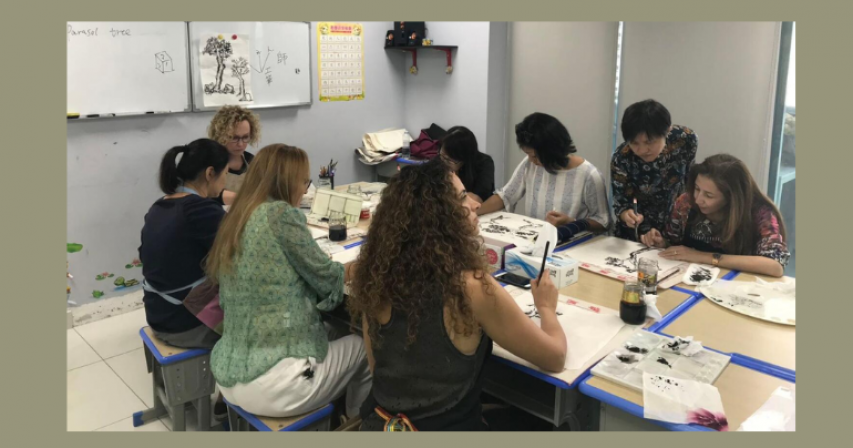The Rising Trend of Learning Chinese Among UAE Residents

In a rapidly evolving global landscape, the influence of China has become increasingly pronounced, prompting a surge in interest among UAE residents to learn Mandarin Chinese. This burgeoning trend extends beyond the realm of academia, with professionals and students alike recognizing the myriad opportunities that fluency in Chinese presents. From career advancement to cultural exchange, the allure of mastering one of the world's most widely spoken languages is undeniable.
Qi Ye, managing director of the Nihao Institute in Dubai, sheds light on the growing popularity of Chinese language programs, attributing it to the desire of individuals to remain competitive in an interconnected world. The ability to communicate effectively in Chinese not only enhances prospects in education and employment but also fosters deeper cultural understanding and interpersonal connections.
For individuals like Aysn, an Iraqi expatriate, learning Chinese has been a transformative journey marked by personal growth and newfound confidence. As she navigates the intricacies of the language, Aysn finds herself drawn to the rich tapestry of Chinese culture, eagerly anticipating the opportunity to immerse herself in the vibrant landscapes she once encountered in textbooks.
The establishment of the Chinese Learning Programme in public schools by the Ministry of Education underscores the UAE's commitment to promoting cultural exchange and mutual understanding with China. With over 64,000 students enrolled in Chinese language courses across 170 schools, the initiative represents a significant step towards fostering cross-cultural dialogue and collaboration.
Beyond formal education, a myriad of institutes and language centers offer Chinese language training programs tailored to the needs of diverse learners. The Great Wall Language Institute, helmed by Xiaojun Yin, provides comprehensive courses designed to equip students with linguistic proficiency and cultural insights. From Emiratis seeking to deepen their understanding of Chinese customs to professionals aiming to enhance their business acumen, the institute caters to a diverse clientele eager to embrace the opportunities presented by China's burgeoning influence.
Despite the inherent challenges of mastering Chinese, including its complex writing system and tonal pronunciation, students exhibit unwavering determination and enthusiasm in their pursuit of proficiency. As China assumes a prominent role on the global stage, the benefits of learning Mandarin extend far beyond linguistic competence. Parents aspire for their children to not only excel in language proficiency but also gain insight into Chinese culture and mindset, positioning them for success in an increasingly interconnected world.
Shan Jin, a pioneering Chinese teacher in Dubai, emphasizes the transformative impact of language education in fostering cultural empathy and bridging societal divides. Through immersive learning experiences, students forge personal connections with Chinese culture, transcending stereotypes and fostering genuine appreciation for the richness of China's heritage.
From weekend classes at the Chinese School Dubai to specialized training programs offered by the Nihao Institute and the Great Wall Language Institute, a plethora of opportunities abound for individuals keen on mastering Mandarin. As students engage in oral practice through watching Chinese media and participating in cultural activities, they embark on a journey of linguistic discovery and cultural enrichment.
In conclusion, the rising trend of learning Chinese among UAE residents underscores the transformative power of language in fostering cross-cultural understanding and global connectivity. As individuals embrace the challenge of mastering Mandarin, they embark on a journey of personal growth, cultural immersion, and professional advancement. With China and the UAE commemorating four decades of bilateral relations, the stage is set for deeper collaboration and mutual exchange, fueled by a shared commitment to cultural diplomacy and linguistic proficiency.
By: Sahiba Suri





Comments